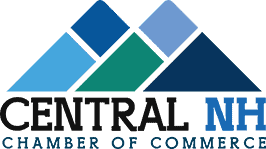Family support is a crucial factor for individuals dealing with addiction recovery. Addiction is a complex issue affecting not only the person struggling with it but also their loved ones. As such, family support can play a vital role in addiction recovery.
Family support can provide emotional support to individuals with addiction who may feel isolated and alone. This emotional support can motivate and encourage them to continue their recovery journey.
Family members can hold their loved ones accountable for their actions and help them avoid triggers that may lead to relapse. This encouragement and accountability can be a powerful motivator for individuals in recovery.
Family members can learn about addiction and how to support their loved ones in recovery. This education can help them understand the warning signs of relapse and how to help their loved ones stay on track.
Finally, studies have shown that individuals with strong family support are less likely to relapse. Family support can provide stability and accountability to help individuals stay on track with their recovery.
If you or someone you love has a substance use disorder, The Plymouth House is available to help. We are dedicated to providing the most comprehensive and individualized medically monitored detox program. To learn more about our programs, contact us today.
The Importance of Family Support in Local Addiction Recovery
Overcoming addiction is a complex process that requires a significant lifestyle change, and seeking professional help is a brave and commendable step toward recovery. For many, getting sober is the most challenging undertaking they will ever face, and thus, a strong support system is vital to achieving long-term success. Family support is especially critical, as addiction affects every family member and disrupts traditional roles, leaving individuals in emotional disarray.
According to a U.S. National Library of Medicine publication, substance use disorders profoundly impact families and individual family members. The effects can include unmet developmental needs, impaired attachment, economic hardship, legal problems, emotional distress, and sometimes violence. Children may also be at an increased risk of developing a substance use disorder. Therefore, it is necessary to involve all family members in the treatment process to maximize its effectiveness.
As a loved one of someone undergoing addiction recovery, your role is vital to their success and long-term sobriety. While treatment is an essential first step, it is not the only one. Achieving freedom from substance dependency is a lifelong journey that requires ongoing love, support, and understanding.
You can support your loved one throughout the recovery process in several ways, including offering ongoing support and encouragement, holding them accountable, providing a safe space to heal, and caring for your needs.
Holding your loved one accountable is also essential, motivating them to change. Setting boundaries and maintaining them when necessary is essential. Providing a safe healing space means creating an environment free of drugs, alcohol, anger, and conflict.
Finally, it is crucial to take care of your own needs. Prioritizing your mental and emotional health is necessary for showing up for your loved one. Seeking help for yourself and healing individually will better equip you for the journey ahead.
The Benefits of Family Support in Addiction Recovery
Addiction recovery is a long and challenging journey, and having support from family members can make all the difference. Research has shown that family support is a crucial component of addiction recovery and can significantly increase the chances of success. Here are some of the benefits of family support in addiction recovery:
- Emotional Support – Addiction recovery is emotionally draining; family members offering emotional support can provide comfort and strength. Family members can provide encouragement and motivation and help the person in recovery stay committed to their goals.
- Increased Accountability – When family members are involved in the recovery process, they can help hold the person in recovery accountable for their actions. This can help the person stay on track and avoid relapse.
- Improved Communication – Addiction can strain relationships, but recovery can allow family members to improve communication and rebuild trust. Family therapy sessions can help family members learn to communicate effectively and develop healthier relationships.
- Increased Understanding – Addiction is a complex disease, and family members may not always understand what the person in recovery is going through. Family support can help increase understanding and empathy, improving relationships and promoting healing.
- Reduced Stress – Addiction can cause stress and tension within families, but family support can help alleviate some of that stress. When family members work together to support the person in recovery, everyone benefits from a more positive and supportive environment.
The Role of Family Therapy in Addiction Recovery
Family therapy is a crucial component of addiction recovery, as it helps the entire family system to heal and grow. Addiction affects the individual and their loved ones, creating a ripple effect of pain and dysfunction. Family therapy is a way to address these issues and work towards healing.
In family therapy, the therapist works with the family to identify how addiction impacts the family dynamic. The goal is to improve communication and rebuild trust. Family members learn to set healthy boundaries and support each other in recovery. The therapist also helps the family identify and change behavior.
Family therapy can take many forms, including individual sessions with family members, group therapy sessions, and even family weekend retreats. The type of therapy chosen will depend on the needs of the family.
One of the primary benefits of family therapy is that it helps to create a supportive environment for the individual in recovery. Family members can provide emotional support and accountability when involved in healing. This can help the individual to stay on track with their recovery goals and avoid relapse.
Family therapy can also help to improve the mental health of family members. Addiction can create feelings of shame, guilt, and resentment within the family, leading to depression, anxiety, and other mental health issues. Family therapy can provide a safe space for family members to express their emotions and work through their feelings.
How Family Support Contributes to Positive Treatment Outcomes
Family support can be a crucial component of addiction recovery, as it can provide individuals with a network of people who understand and support their journey toward sobriety. Here are some ways in which family support can contribute to positive treatment outcomes:
- Encouragement and Motivation – Family members can provide much-needed encouragement and motivation to individuals struggling with addiction. Family members can help individuals stay motivated to continue their treatment and recovery by offering positive feedback and support.
- Accountability – Family members can also help individuals stay accountable for their actions and commitments. They can provide a safe and supportive environment for individuals to discuss their challenges and setbacks and hold them responsible for staying on track with their recovery plan.
- Addressing Family Dynamics – Family therapy can be an essential part of addiction treatment, as it can help address family dynamics contributing to an individual’s addiction. By working together as a family, everyone can learn to communicate more effectively, resolve conflicts, and positively support one another.
- Providing Practical Support – Family members can also offer practical support, such as helping individuals with transportation to treatment appointments or assisting with household responsibilities. This can help alleviate stress and allow individuals to focus more fully on their recovery.
Strategies for Families to Support a Loved One in Recovery
Supporting a loved one in recovery from addiction can be challenging and complex. Still, there are several strategies that families can use to help their loved one maintain sobriety and achieve positive treatment outcomes. Here are some strategies:
- Educate Yourself About Addiction and Recovery – Learning about addiction and recovery can help family members understand the challenges their loved one is facing and how to support them effectively. Attend support groups, read books, or talk to addiction specialists.
- Encourage Your Loved One to Seek Professional Treatment – Professional treatment is often necessary for lasting recovery. Encourage your loved one to attend therapy, support groups, or rehab programs.
- Create a Supportive Home Environment – A supportive home environment can help your loved one feel safe and encouraged. Remove any triggers or substances from home, and establish clear boundaries and rules.
- Develop Healthy Communication Skills – Communicating effectively with your loved one can help maintain a positive relationship and reduce the likelihood of conflicts. Use “I” statements, active listening, and empathetic responses to foster healthy communication.
- Practice Self-Care – Supporting a loved one in recovery can be emotionally draining, so taking care of your physical and emotional needs is essential. Take breaks, practice self-care activities, and seek support from other family members or professionals when needed.
- Celebrate Milestones and Successes – Celebrating milestones and successes can help motivate your loved one to continue their recovery journey. Acknowledge their efforts, encourage their progress, and celebrate their achievements.
Addressing Family Communication Issues in Addiction Recovery
Addressing communication issues within a family is crucial to support addiction recovery. Below are some strategies that families can use to improve communication during the recovery process:
- Practice Active Listening – Family members should aim to listen to their loved ones without interrupting or judging. Let the person speak their mind and share their feelings without feeling ashamed or judged.
- Use “I” Statements – When talking to a loved one in recovery, family members should try to use “I” statements instead of “you” statements. “I” statements are less likely to come across as accusatory and can help to prevent conflict. For instance, instead of saying, “You never listen to me,” say, “I feel unheard when I talk to you.”
- Avoid Blaming and Shaming – Family members should avoid blaming their loved ones for their addiction. Addiction is a disease, and blaming or shaming the person can make them feel defensive or guilty. Instead, focus on supporting their recovery journey.
- Set Boundaries – Setting boundaries is essential in maintaining healthy relationships. Family members should communicate their boundaries clearly and respectfully and stick to them.
- Seek Professional Help – Family therapy can be beneficial in addressing communication issues in addiction recovery. Family members can seek professional help to improve communication and learn coping strategies.
By improving communication and creating a supportive environment, families can significantly contribute to positive treatment outcomes in addiction recovery.
How to Navigate Relapses & Continuing Care With Family Support
It is important to remember relapse is common in addiction recovery. It is crucial to approach relapse with understanding and a plan for continuing care. Here are some strategies for navigating relapse and continuing care:
- Educate yourself and your loved ones about addiction and relapse.
- Maintain open and honest communication.
- Encourage your loved one to seek additional support.
- Practice self-care.
- Develop a relapse prevention plan.
We Are Here For You
Let Us Help You Heal
Our Drug & Alcohol recovery services are second to none.
Learn how we can help by speaking with one of our Treatment Advisors today.
Contact Us to Learn More
At The Plymouth House, we remain dedicated to providing our clients with a comprehensive medical and clinical care program that focuses on much more than physical stabilization. In addition to emphasizing physical recovery, we tackle mental, emotional, and spiritual well-being. While prioritizing a safe and pain-free withdrawal, we offer individual, group, and family therapy sessions, case management services, relapse prevention training, and aftercare planning.
Contact us today if you or your loved one is ready to begin an entirely new way of life and commit to long-term recovery. As soon as you call, we start developing a plan of action that begins with an initial pre-assessment. This assessment helps us determine the most appropriate level of care for each unique case. We identify potential coverage options if our medically monitored detox program is a good fit. We work closely with most major regional and national insurance providers. Contact us today for a free, no-obligation insurance benefit check.
Get Started Now
Give us a call 24/7
(888) 693-1927


Reviewed for accuracy by:
Russell Beebe MLADC, LCMHC
Russell is a Master Level Alcohol and Drug Counselor (MLADC) and Licensed Clinical Mental Health Counselor (LCMHC) with over 11 years experience treating individuals with substance use and co-occurring disorders. Russell was inspired to get into the field after his experience as a resident at The Plymouth House in 2008.



















